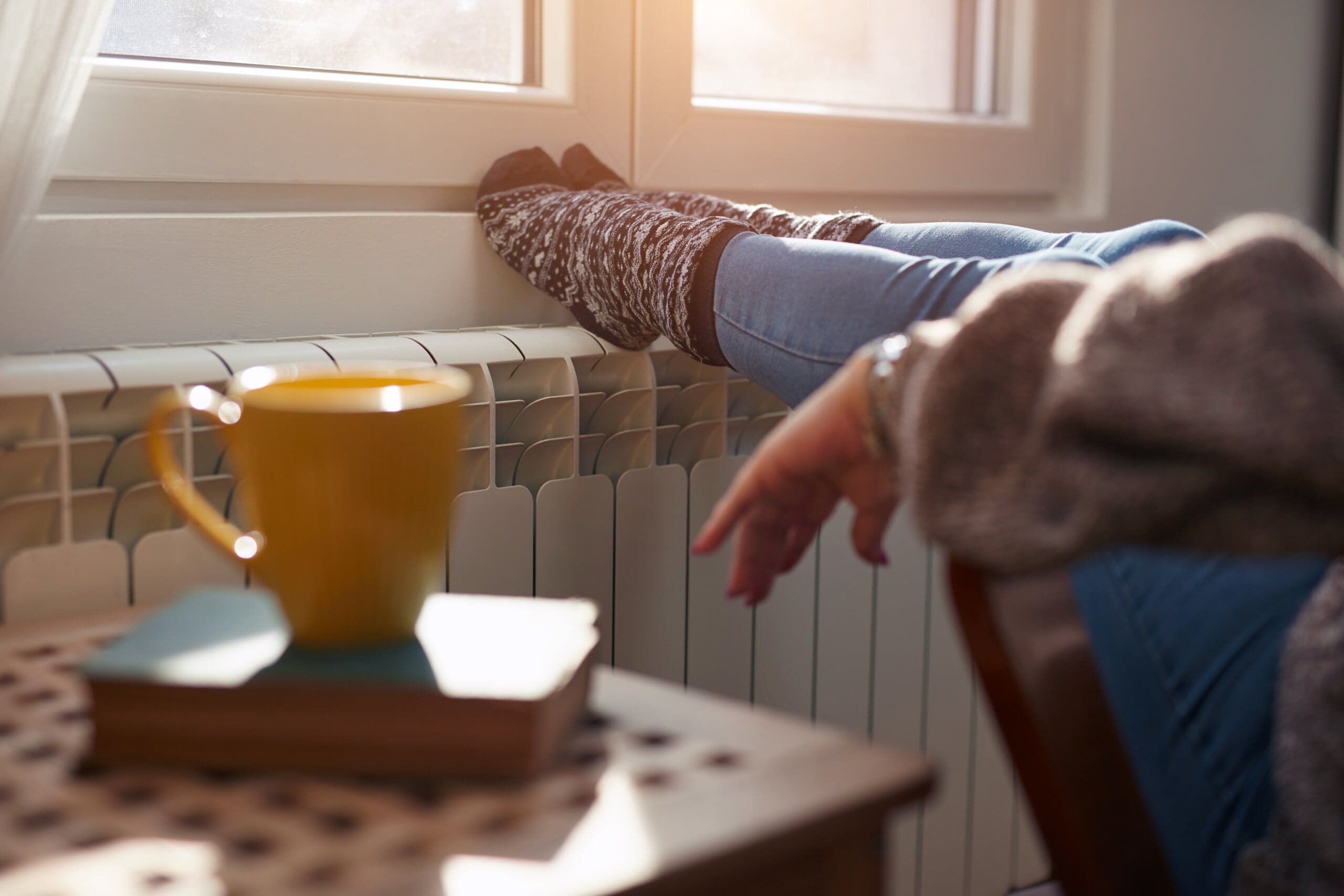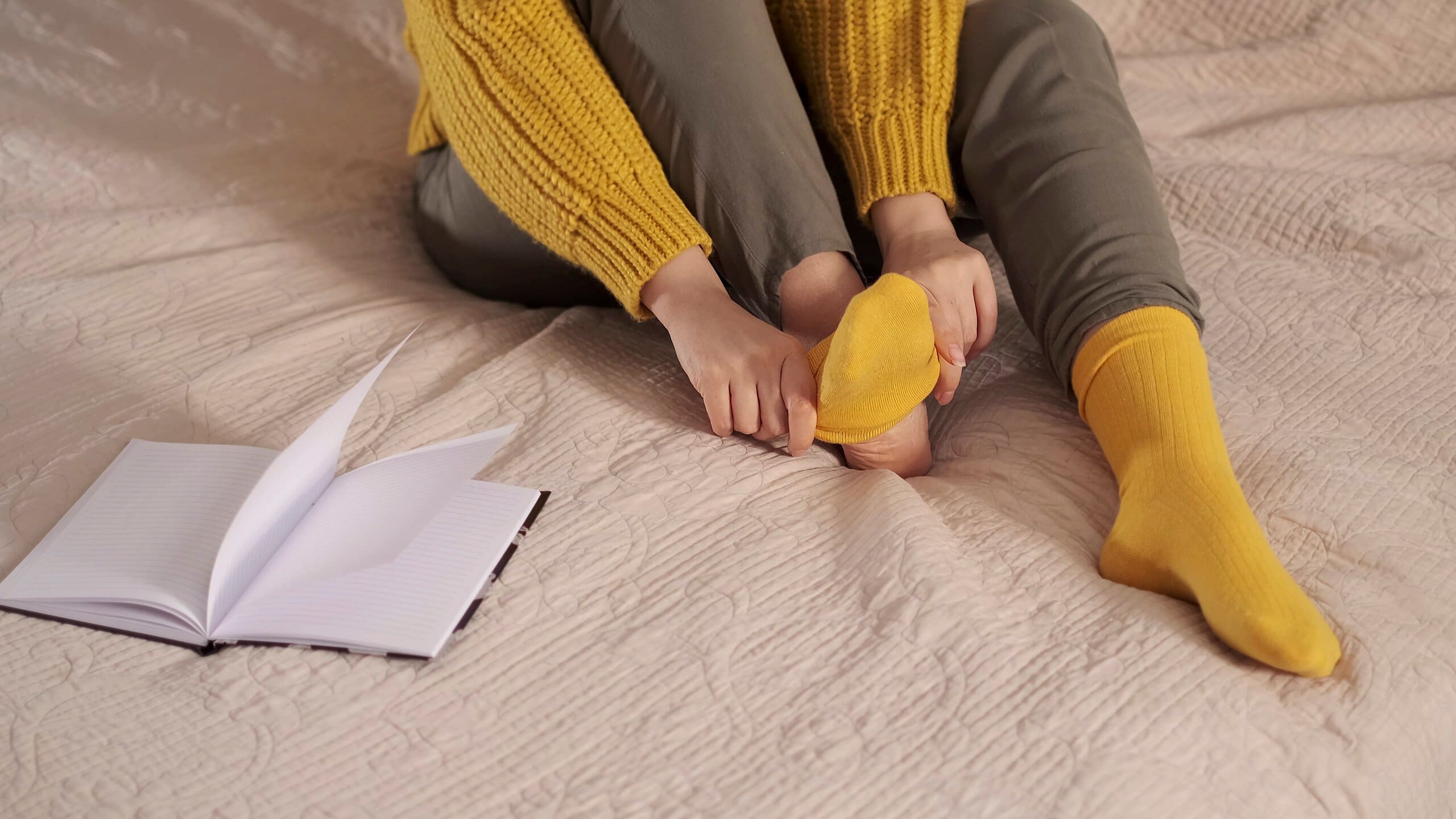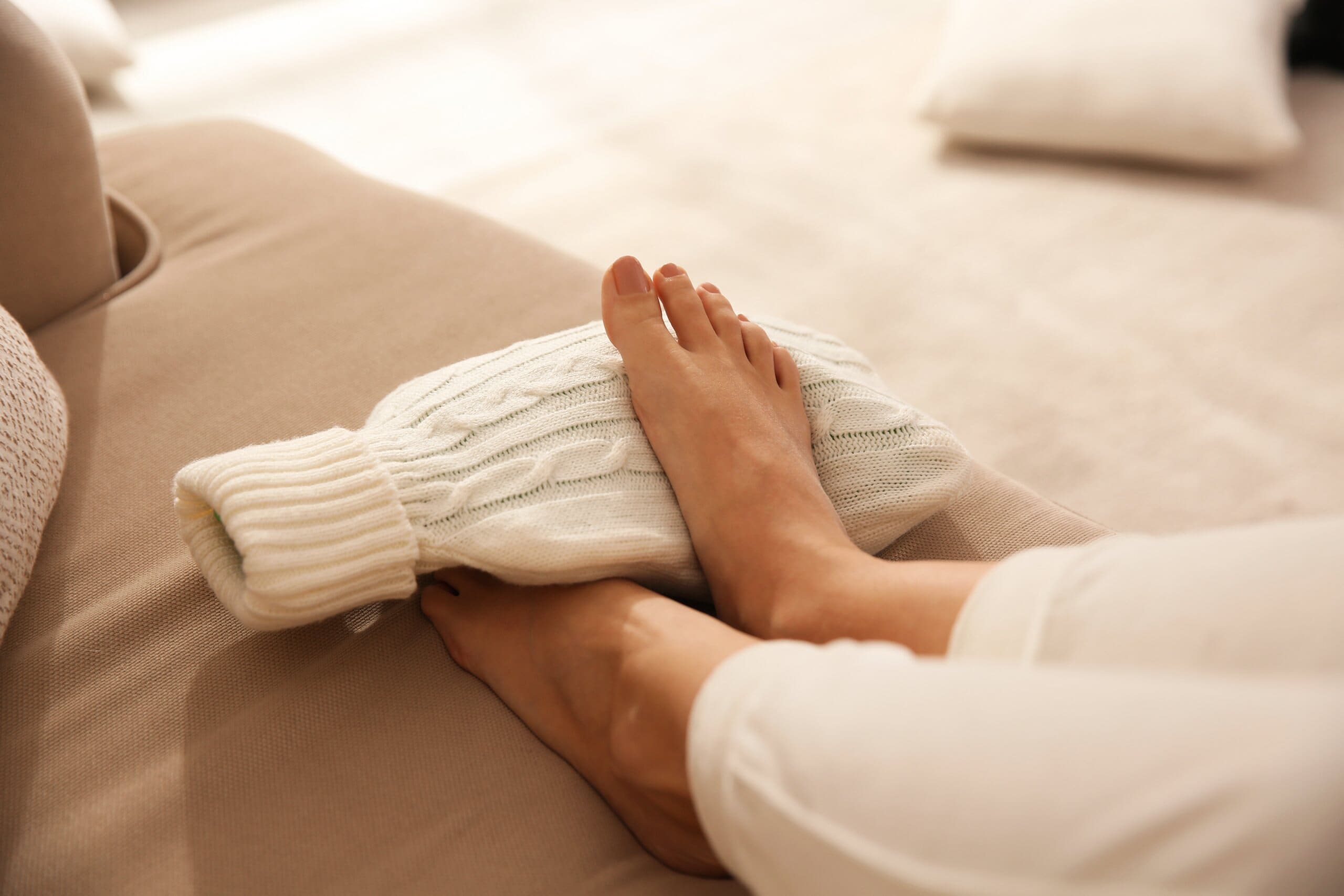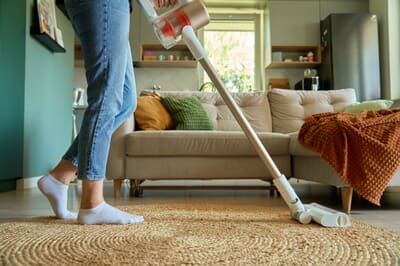Anyone who’s ever slept in a chilly room knows that getting to sleep at night can be a lot harder if you can’t get yourself warm, especially when it’s your feet that are shivering the most!
Being comfortable in bed is one of the most important factors for helping us fall asleep quickly, so finding ways to keep your feet warm in bed can be the key to getting a good night’s sleep on a regular basis.
Naturally, sometimes it’s not your fault that you have cold feet at night in bed, but don’t worry, there are a few tips and tricks out there that you can follow to get around this irritating issue!
In this blog, we'll explain some of the reasons why you may be suffering from cold feet in bed, as well as our top tips on how you can keep your feet toasty while you're sleeping.
Find out all you need to know below!

Why are my feet always cold in bed?
For the most part, having cold feet is generally your body’s reaction to the temperature around you, so you’ll probably find that you get cold feet more often in the winter months when the weather is wetter and cooler.
Temperatures like these are pretty much unavoidable unless you always have your heating on full-blast, however, having cold feet even when it’s warm in your room can be a sign of some different medical conditions that can make it difficult to keep your feet warm at night.
Generally, if you find you have very cold feet at night alongside colour changes to your skin or even pain in your feet, it can be a sign of an underlying medical condition that could be impacting your ability to sleep comfortably.
Some of the more common conditions associated with cold feet can include:
- Diabetes
- Anaemia
- Raynaud’s disease
- High cholesterol
- Stress
Fortunately, there are different signs and symptoms associated with each of these conditions alongside cold feet, so let’s dig a little deeper to see if one or more of these might be something you want to speak to your GP about:
Diabetes
Due to the varied nature of this condition, there are a couple of different problems associated with diabetes that could give you cold feet at bedtime – such as peripheral neuropathy and peripheral artery disease.
Peripheral neuropathy affects the nerves in your feet, which can make them feel cold to you but they’re actually warm to the touch. Meanwhile, peripheral artery disease blocks the blood flow to your legs and feet. As a result, this hampered circulation can make your feet cold – after all, there’s not even warm blood getting to them to keep them warm!
Anaemia
Anaemia occurs when your body doesn’t produce enough red blood cells to transport oxygen from your lungs to the rest of your body. And much like peripheral artery disease, this means that your feet might not get enough regularly oxygenated blood to keep them warm on their own.
Raynaud’s disease
One of the more uncomfortable conditions on our list; if you are living with Raynaud’s disease, then you probably find that your body overreacts to cold when exposed to cold temperatures.
Often, if the temperature drops, you might find your fingers and toes start to feel numb or even frozen – sometimes, they may even change colour, going from pale to blue! Then, as you begin warming up, they may sting and become red.
As for what causes Raynaud’s disease to flare up, there can be many triggers, including anxiety, stress, and particularly cold weather. Either way, Raynaud’s can pose a problem for keeping your feet warm at night because it keeps blood from moving easily to your fingers, toes, nose, lips, and ears.
This is because Raynaud’s causes the arteries in your feet and hands to narrow and spasm, limiting the amount of blood that can be carried from your heart to your fingers and toes.
High cholesterol
While high cholesterol is typically regarded as problematic for a variety of health reasons, more recent studies have shown a link between high cholesterol and complications with blood circulation.
Essentially, the higher the cholesterol you have, the harder it is for your body to pump blood to the farthest parts of your body, which, as we explained above, can leave you with very chilly feet when you’re inactive!
Stress
Anyone who’s ever worked an intense job or been through a difficult time knows that stress can have lots of unusual side effects, including cold feet, fainting, or feeling numbness in your fingers and toes.
This is because, when you’re stressed, your body tries to protect your vital organs in your core by pulling back blood from your extremities to keep blood in your chest for longer. Fortunately, if you can find ways to lower your stress and manage sleep anxiety, you can help your body relax and feel warmer at night!

How to warm cold feet in bed
So, now that we know some of the causes of why your feet might be cold at night, what are some tips for how to warm feet in bed for a better night’s rest? After all, even in your warmest pyjamas, all wrapped up in your fresh bedding and as cosy as can be, signs of cold feet can still strike!
Luckily for you, there are some quick fixes you can try to make sure that your cold feet thaw enough for you to fall asleep comfortably. We’ve listed our favourites below for you to try:
1. Get your warmest woolly socks
One of the oldest clothing materials out there, wool is considered one of the best materials for socks if you need to keep your feet warm all night long. This is because it’s made from natural fibres, giving it some great heat retention properties.
For maximum warmness, we recommend popping your socks on the radiator for a while before you put them on to get into bed! But make sure your socks are nice and loose too because if your socks are too tight around your ankles or feet they can cut off that much-needed circulation keeping your feet warm!
However, you should make sure that you're putting a fresh, clean pair of socks on before bed, as you should never wear dirty socks to bed!
2. Preheat your bed
It goes without saying that getting your bed nice and warm before you hop in can also massively help with keeping your feet toasty. Try popping a hot water bottle between the sheets for an hour or two before you commence your bedtime routine, right by where your feet normally go, and your bed will be warm before you know it!
Alternatively, you can go a step further and get yourself a heated mattress topper or blanket that can warm up the entire bed. These are perfect in the winter months when you want to avoid putting the heating on all night and can even make it easier to warm up and get out of bed in the morning when it's cold!
3. Have a foot bath
Looking to warm your feet before you get into bed? Why not soak them in some warm water beforehand? Water conducts heat 25 times faster than air, so you’ll be able to warm those toes up pretty quickly! And once they feel warm, towel them dry and pop on those woolly socks to keep them cosy for the night ahead!
In fact, taking a hot shower before bed can both warm your feet up and help you fall asleep quicker!
4. Get some exercise in
While we don't recommend exercising right before bed, a healthy lifestyle filled with self-care is a fantastic way of staying warm during colder weather in general. Regular exercise during the day is an important part of this self-care journey.
Essentially, by incorporating a regular cycle of movement intensities and relaxation into your day throughout the week, you’ll improve your body’s circulator abilities, which in turn will help you rest better at night and warm your feet up by getting more blood to them faster!
5. Stay hydrated
Finally, while you might not think it, drinking lots of water during the day and avoiding alcohol late at night are both fantastic ways to ensure that cold feet don’t haunt you while you sleep!
This is because dehydration can decrease your blood circulation, and the first place your circulation drops is in your hands and feet – hence why they might get chilly! So, to avoid this, most health professionals recommend drinking around 2 litres of water every day to keep your body healthy and hydrated.

Stay warm in bed with MattressNextDay
And there you have it; hopefully, you now have a much better understanding of the answers to the question “Why are my feet cold at night?” And while we can’t guarantee these tips will help warm your tootsies every evening, they should at least go some way to taking the edge off.
Of course, if you want to find other more exciting ways to warm yourself up in bed, then why not check out our guide on the best mattresses for sex in our Snooze News section? We’ve got all sorts of health and lifestyle pieces for you to discover alongside some insightful sleep science reports you can read in bed while you’re warming up!





